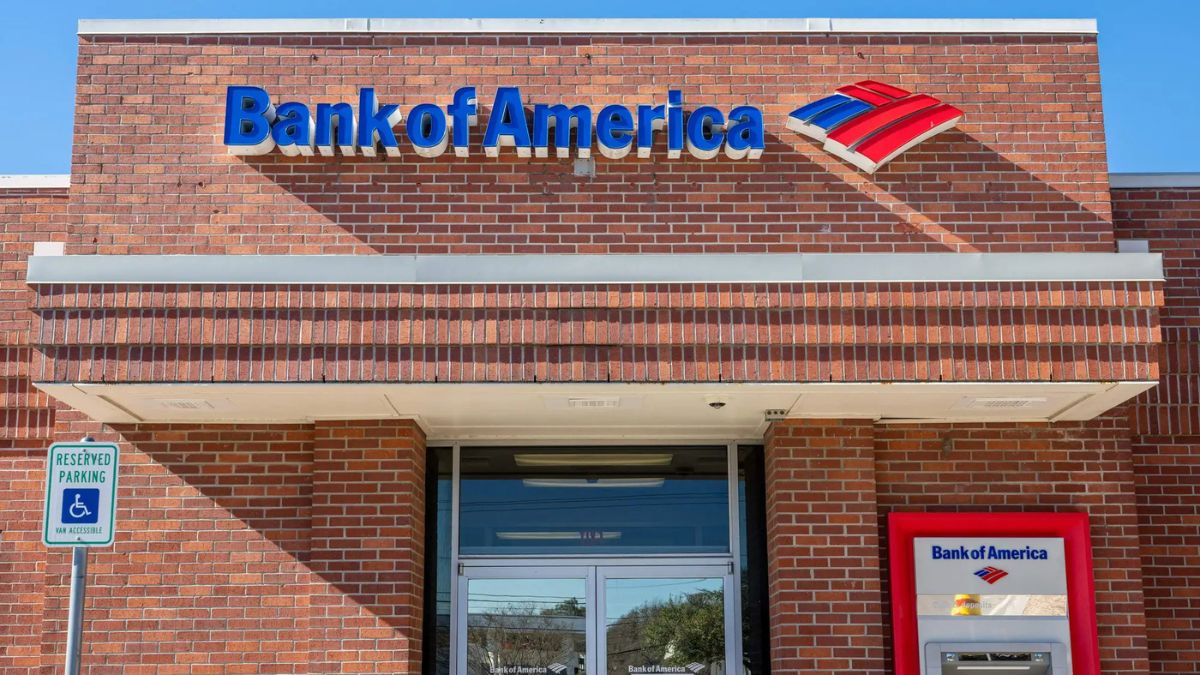Bank of America has officially announced the closure of 19 physical branches across 10 U.S. states in 2025, signaling another step in the ongoing shift from traditional banking toward digital-first services. According to recent regulatory filings with the Office of the Comptroller of the Currency, these branch closures are either already completed or scheduled to occur before the end of the year.
Customers in California, Florida, Illinois, Kentucky, Massachusetts, Nevada, South Carolina, Texas, Virginia, and Washington will be impacted by this change.
Bank Closures Reflect Ongoing Industry Trend
The move is consistent with a nationwide banking trend: fewer people are visiting brick-and-mortar branches, opting instead for online and mobile alternatives. The U.S. banking sector has averaged over 1,600 branch closures per year since 2018, according to Self Financial.
In the first quarter of 2025 alone, 272 bank branches across the country permanently closed. Notably, 32 closures occurred in March—a strong indicator of the accelerating pace.
California and Florida Lead in Branch Reductions
Over the last decade, California and Florida have recorded the highest number of bank branch closures:
- California: 1,114 closures
- Florida: 1,091 closures
These numbers highlight how banking giants are scaling back physical operations in regions where digital engagement is surging, and operating costs remain high.
List of Bank of America Branches Closing in 2025
Bank of America released a detailed list of 19 locations scheduled for closure this year:
| State | Location(s) |
|---|---|
| California | Grass Valley, San Jose, San Mateo, Davis, Huntington Beach, Camarillo, San Francisco |
| Florida | Wellington |
| Illinois | Lake in the Hills, Mundelein |
| Kentucky | Fort Campbell |
| Massachusetts | Lynnfield |
| Nevada | Las Vegas |
| South Carolina | Charleston |
| Texas | Arlington |
| Virginia | Burke |
| Washington | Seattle (Madison St, Admiral Way, Rainier Ave S) |
The decision to close these branches stems from declining foot traffic and rising operational costs, including rent, staffing, and maintenance. Bank of America has emphasized that these closures are part of an ongoing evaluation process to determine which locations are no longer financially sustainable.
Digital Banking Drives Physical Consolidation
As customer habits shift, banks are reallocating resources toward digital platforms. Bank of America has invested significantly in mobile banking tools that allow users to:
- Deposit checks remotely
- Transfer money between accounts
- Pay bills and manage loans
- Access account information 24/7
This technology-forward approach has gained widespread acceptance. According to recent surveys, nearly 70% of Americans believe the banking industry needs modernization, and many now prefer mobile services over physical branches.
Could Bank Branches Disappear Completely?
If the current closure rate continues, experts warn that physical bank branches could become functionally obsolete by 2041. Other major institutions are already following similar downsizing models:
- Wells Fargo has closed dozens of branches this year.
- TD Bank has announced multiple closures as part of its restructuring.
- Flagstar Financial plans to shut down 60 locations in 2025 after reporting an \$845 million net loss in 2024.
These moves highlight a shared industry belief that the future of banking is digital, even if that means leaving behind some customers still reliant on in-person services.
What It Means for Bank of America Customers
Bank of America is encouraging affected customers to transition to its online and mobile platforms. For those impacted by branch closures, the bank recommends the following alternatives:
- Use the Bank of America mobile app for account management and transactions
- Locate the nearest open branch using the online branch locator
- Withdraw and deposit cash at nearby ATMs
- Contact customer service via phone or online chat for assistance
These services are designed to ensure continued access to banking support despite fewer physical locations.
Accessibility Challenges Still Remain
While digital tools offer speed and convenience, not all customers are equipped to make the switch. Some elderly customers, as well as individuals in low-connectivity rural areas, still rely on traditional branch banking.
Advocacy groups have expressed concerns about digital exclusion, noting that banks must balance technological efficiency with inclusive access to avoid leaving vulnerable populations behind.
No Further Closures Announced—Yet
At this time, Bank of America has not announced any closures beyond the listed 19, but financial analysts expect that more cuts may be on the way. As cost-saving strategies evolve and more customers go digital, branch consolidation is likely to remain a key component of the bank’s long-term strategy.
Banking in 2025: A Changing Landscape
The closure of 19 Bank of America branches underscores a transformative period in the financial services industry. With banks focusing on digital transformation, the traditional in-person model is becoming increasingly rare.
While the convenience of mobile banking is undeniable, the challenge ahead lies in ensuring that all customers—regardless of age, income, or tech ability—can still access the banking services they need.
